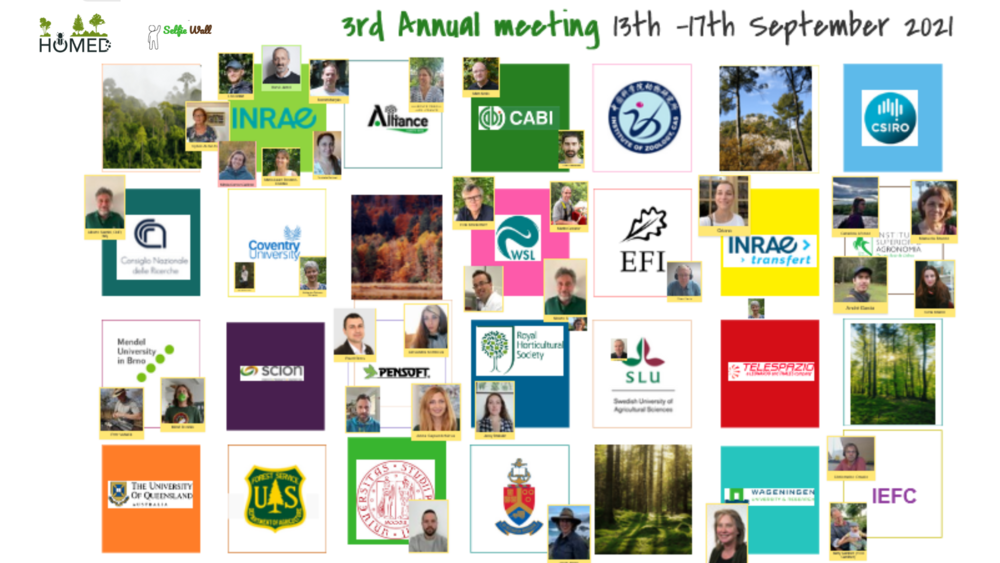holistic management of emerging forest pests and diseases
HOMED partners meet up for the third annual meeting of the project
More than 50 project partners gathered between 13 and 17 September 2021 to mark the successful ending of the third year of the HOMED project. Due to the COVID-19 pandemic, the third annual meeting of HOMED was also held online. As the four-year project enters its final stage of development, the third HOMED AGM is the last regular annual meeting of the project consortium.
Within the five conference days, working group teams of scientists and experts discussed project achievements, research results and discussed future actions. Each working group held a separate panel where they shared their research progress, challenges and upcoming plans for the last year of HOMED’s duration. Project partners held the sessions within an interactive online environment and a lot of ideas were generated.
The first day of the meeting fostered a number of discussions, with the highlights of the work of all HOMED project partners and teams presented online in front of consortium members. Talks about invasive alien species control, comprehensive risk analysis, eradication strategies, biological control models, stakeholder engagement, and communication were included.

Participants of HOMED's third annual meeting
The subsequent days of the meeting provided a myriad of research results & insightful findings. The interactive sessions that different project partners held included a wide variety of topics such as improving eradication and containment tools for emerging forest pests and tree pathogens; presentation of citizen science projects for forest protection and monitoring, like the Check a Sweet Chestnut project; development of new prevention and detection tools, including metabarcoding techniques for analysis and sentinel tree sites for monitoring and analysis of invasive pests; comprehensive risk analysis for emerging and invasive pests and diseases of trees and forests, where HOMED partners from Wageningen University & Research and INRAE presented exciting results from the modelling.
The panels also included presentations of eradication and containment tools, as well as surveillance and delimitation tools, including landscape surveillance and aerobiological methods for surveillance of forest pathogens, and training and discussion on communication and dissemination. A special workshop on PhD and post-doctoral students was held to address their needs within the project.
"Thank you for all the great work that has been done in HOMED so far. As the project enters its final year, I am confident that we can go on publishing research results and continue the effective collaboration between partners," project coordinator Herve Jactel comments.
The HOMED team is looking forward to a productive final year, where further research and scientific collaborations would provide insightful results. In 2021 major targets of HOMED would be to reach out the project’s results to practitioners, to continue the fast pace of research progress, and to apply new and engaging means of communication with the scientific community and the general public.